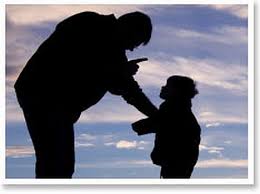Since well before the War on Drugs, we’ve been taught to “just say no.” Today we know the pitfalls of pure prohibition and denial. We know the value of “just saying yes” to sobriety instead. Still, especially during the period of craving that follows quitting, we do have to say No to ourselves. Perhaps many times a day.
What I’m interested in is the tone of voice we use to say it. And how we feel as a result.
I’ve written and spoken a lot about ego fatigue (ego depletion). It’s a well-studied psychological phenomenon: the loss of cognitive control that comes when we continuously try to inhibit an impulse. Ego fatigue is one form of emotional dysregulation. Other types of emotional dysregulation have been studied by psychologists and  neuroscientists, and they pretty much all involve losing the capacity to inhibit impulses. Many regions of the prefrontal cortex are designed (by evolution) for inhibition. Some forms of inhibition are rapid, automatic and unconscious, some are at the borders of consciousness, and some are completely conscious. Ego fatigue may strike at several of these levels. But let’s think now about conscious inhibition: saying to yourself, “No, don’t do it!”
neuroscientists, and they pretty much all involve losing the capacity to inhibit impulses. Many regions of the prefrontal cortex are designed (by evolution) for inhibition. Some forms of inhibition are rapid, automatic and unconscious, some are at the borders of consciousness, and some are completely conscious. Ego fatigue may strike at several of these levels. But let’s think now about conscious inhibition: saying to yourself, “No, don’t do it!”
So there you are, craving to get high “one more time,” and saying to yourself over and over again: No, don’t do it! Then ego fatigue creeps up on you…some part of your cognitive hardware gets tired and gives up the battle. The impulse takes over. Each of the five biographical chapters in my book shows exactly how that plays out in the life of someone addicted to something. But here’s the double whammy, the Catch-22: Psychologists have shown clearly that suppression (just saying No) makes ego fatigue worse. Suppressing the impulse gives it more power. The only way to stay on top of ego fatigue is to reinterpret or reframe the situation: “that’s no fun, that’s not what I want.”
Okay, all fine in theory. But in real life, you simply can’t reframe the wish to get high every time it pops up in your brain, especially during the period of “incubation of” craving, in the weeks or months that follow quitting (see last post). You have to say No to yourself some of the time, maybe even most of the time.
 But what’s the tone of that internal message? What’s the tone of the “No, don’t”? I haven’t heard much about this from other addicts or researchers, but my impression is that the tone of the internal prohibition is often one of parental authority. It’s often a tone that’s warning, disapproving, judgmental, perhaps accusing, almost menacing. “You’d better not!” it seems to say. “Or else!” it implies. It’s easy enough to dredge up images of the disaster you’re about to visit on yourself, but that might just strengthen the scolding, authoritarian voice.
But what’s the tone of that internal message? What’s the tone of the “No, don’t”? I haven’t heard much about this from other addicts or researchers, but my impression is that the tone of the internal prohibition is often one of parental authority. It’s often a tone that’s warning, disapproving, judgmental, perhaps accusing, almost menacing. “You’d better not!” it seems to say. “Or else!” it implies. It’s easy enough to dredge up images of the disaster you’re about to visit on yourself, but that might just strengthen the scolding, authoritarian voice.
 So how do we feel when we receive this stern prohibition time and time again? We feel frustrated, obstructed, denied the thing we want. And what’s worse, we may feel put down, misunderstood, and unfairly punished. Don’t I deserve to get high, today of all days? No, you don’t! Be quiet!
So how do we feel when we receive this stern prohibition time and time again? We feel frustrated, obstructed, denied the thing we want. And what’s worse, we may feel put down, misunderstood, and unfairly punished. Don’t I deserve to get high, today of all days? No, you don’t! Be quiet!
This internal dialogue may be playing out in your head, just on the fringes of consciousness. Or maybe you are quite conscious of the sense of being denied something, the sense of being suffocated or oppressed. I know this was frequently the case for me when I ran around breaking into medical centres and stealing drugs. I felt that oppressive edict like a dark, overhanging cloud bank.
 So what I would often do is rebel. I’d finally say, Fuck you, I will if I want to! And there was a palpable sense of relief, a sense of lightness, the straps of a harness being peeled off. And then I would get high for a few days. And then I would suffer.
So what I would often do is rebel. I’d finally say, Fuck you, I will if I want to! And there was a palpable sense of relief, a sense of lightness, the straps of a harness being peeled off. And then I would get high for a few days. And then I would suffer.
This scenario is surely a case of ego fatigue. But it’s more than that. It’s not just a neutral signal telling you to inhibit an impulse, and then wearing thin with time and repetition. It’s also a voice that makes you feel frustrated, alone, put down, anxious, and probably angry. An ideal circumstance for going back to drugs or drink.
Our minds are full of internal voices. We are fundamentally social creatures, and our interpersonal relationships are constantly playing out, both in the real world of other people and in the private world inside our minds. When we realize this, I think we acquire the power to shift the dialogue, to make it more friendly, less hostile.
The tone of voice with which we say No to ourselves makes all the difference. It’s very possible to link the No with a Yes. To make it a message of support and hope, not just denial and obstruction. We can take on the voice of a critical parent. Or we can take on the voice of a friend, ally, loving parent, big brother or sister… Instead of saying “You’d better not…” (for which there’s a clear script inscribed on our auditory cortex), we can say, “Let’s not do this; let’s do that instead. This isn’t what we want.” Even just by making the voice say “we” instead of “you” we shift the dialogue. We make it supportive rather than punitive.
That’s one key to reframing the addictive impulse, which reduces or eliminates ego fatigue.
That’s when there’s no one there to defy.

Leave a Reply